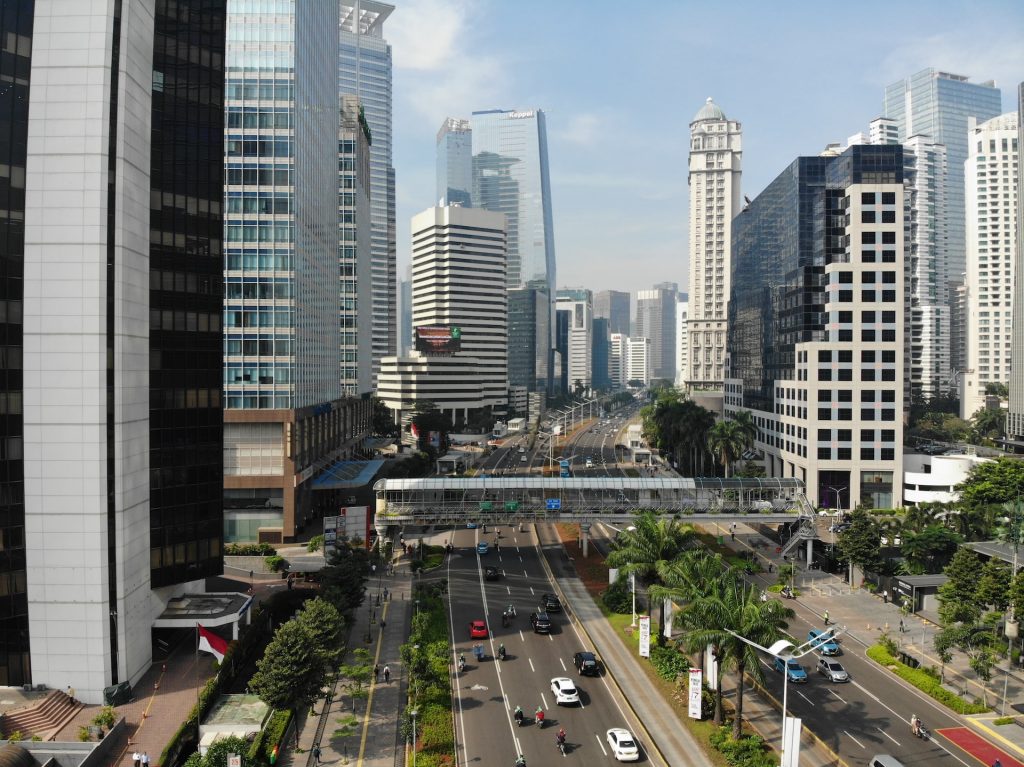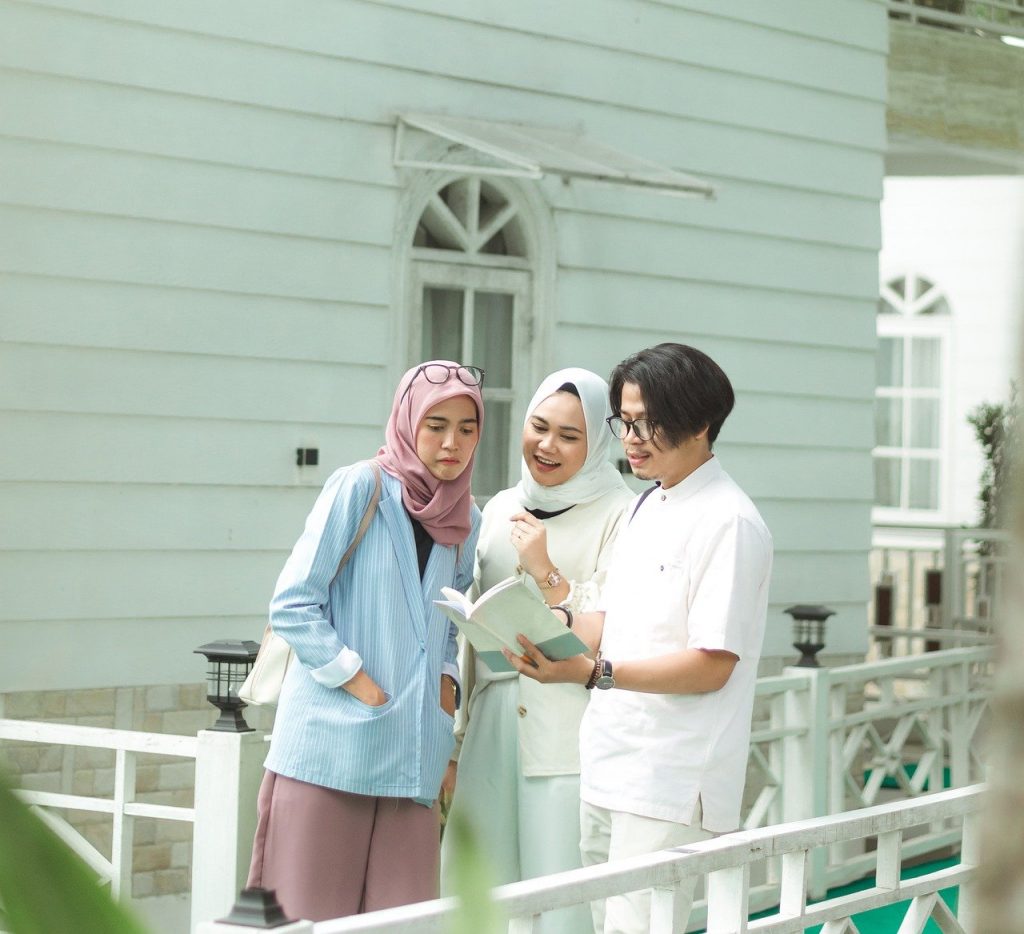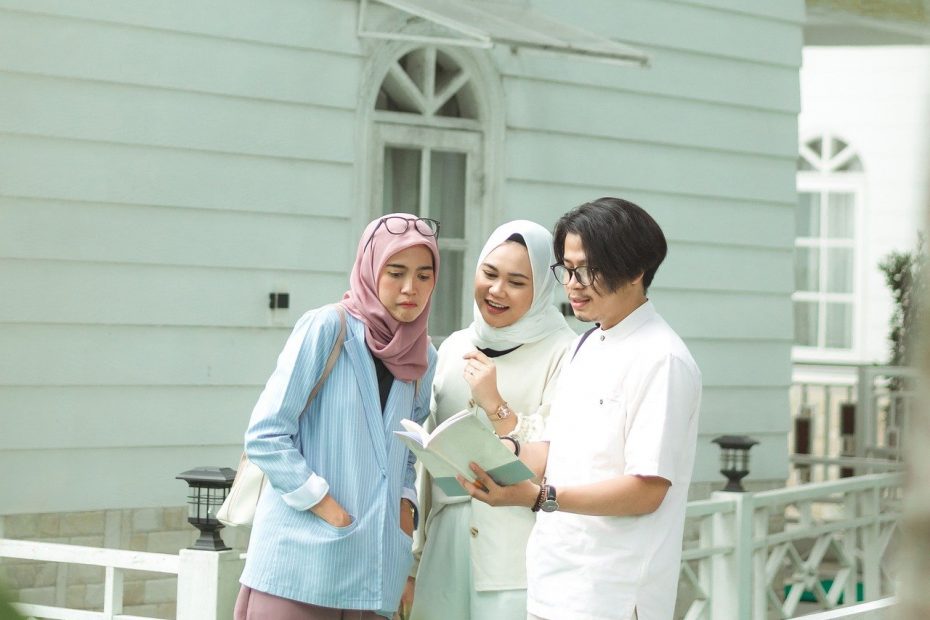Are you interested in studying in Indonesia?
You should definitely read our blog post to learn everything you need to know about studying in Indonesia. This post covers the various sorts of programs and schools, to the types of documents you may need to submit. It also contains information on how to apply for a student visa and pay for your tuition and living expenses. That’s not all, you will also get information on post study opportunities when you finish your study in Indonesia.

An Overview of Studying in Indonesia
Studying in Indonesia can be a fulfilling experience for international students. Indonesia is a multicultural country that hosts many different cultures and traditions. It is also home to the largest Muslim population in the world and has a rich Islamic history. Students who study in Indonesia will be able to learn about both Buddhism and Hinduism, as well as the indigenous religions of Bali and Java. Furthermore, they will have a chance to explore Indonesian arts, such as batik painting and gamelan music.
Why Should You Study Abroad in Indonesia?
Is Indonesia Good for studies?
There are several reasons you should study in Indonesia. Here are 7 distinct reasons:
- Indonesia offers cheap tuition fees for international students.
- You gain an excellent and competitive education in a safe and inexpensive environment thanks to the country’s economic development and stable political condition.
- You become part of a diverse and international student community.
- You make your dream of studying abroad come true and take part in a life-changing experience.
- You gain experience to help you achieve your career goals much faster.
- It’s a great place to make friends and make connections. There are around 7,000 islands found in Indonesia, which means that there is a ton of diversity. You can visit amazing islands and make friends with locals.
- Indonesia is home to the largest Muslim population in the world, which means that you’ll be able to learn about different cultures, religions and traditions.
Indonesia Education System
The Indonesian education system is comprehensive and well structured. It is divided into pre-primary, primary, secondary, and tertiary levels. At the pre-primary level, children are taught basic skills in language arts and mathematics, at the primary level, they are taught math, science and social studies with an emphasis on language arts, and at the secondary level, they are prepared for university education by taking courses in English and natural sciences as well as humanities. The tertiary level consists of universities that offer a wide range of courses in various disciplines such as engineering or agriculture. The Indonesian education system has been praised for its high standards of quality which has led to an increase in students’ competitiveness in international arenas such as the Olympics or the International Mathematical Olympiad (IMO).
The five institutions that make up Indonesia’s higher education system are: Academies; Polytechnics; Advanced Schools; Institutes; and Universities.The University of Indonesia, established in 1947, is the oldest. It has an excellent local standing and was listed among the top 50 universities in Asia.
Academies only offer one specific subject, usually either science, engineering, or the arts. Polytechnics place a strong emphasis on either practical learning or specialized knowledge. Advanced schools, like academies, place more of an emphasis on a single body of knowledge. Institutions focus especially on one field of expertise. whereas colleges prioritize training and further education in various disciplines.
In Indonesia, private institutions account for the majority of higher education. However, only 3.5 percent are controlled by the state.
Private sector students enjoy a high-quality learning environment and system in many nations. As a result, the requirements of the privately held institutions have grown over time. In Indonesia, however, the situation is the exact opposite. The public schools are the best option in this situation, followed by private institutions. Indonesia has two main categories for her higher education system. The national system and what is referred to as the religion system are the two primary streams of Indonesia’s higher education system.
The Ministry of Education and Culture regulates the former, which includes the majority of institutions of higher learning, both public and private (Kemendikbud, or MoEC). The latter is governed by the Ministry of Religious Affairs (MoRA) and includes institutions of higher learning that are owned and controlled by religious groups, including government-sponsored institutions, and that have curricula that emphasize theology and other specifically religious study areas. However, many religious organizations, such as those run by the Catholic Church and the Muhammadiyah, continue to be a part of the Kemendikbud system and continue to teach the national curriculum.
Depending on their licensing, all institutions of higher learning are able to award degrees at all levels, from bachelor to doctoral. However, polytechnic master’s and doctoral degrees are known to as “applied” degrees. The length of time needed to complete a bachelor’s degree in Indonesia can vary, particularly if you’re pursuing an online bachelor’s degree or taking professional courses like law or medicine.
An average lawyer needs seven years of college, including four years of undergraduate study and three more years of law school. 5.5 years are spent on the Indonesian medical curriculum. It consists of a 3.5-year pre-clinical phase and a 2-year clinical stage. The Master of Arts (MA) and Master of Science are the two most popular master’s degrees, and they can be earned two years after receiving a bachelor’s degree (MS)
A PhD program typically lasts three years; this includes one semester of additional study and 2.5 years of research and dissertation work.
How Much Will It Cost To Study In Indonesia?
Tuition fees in Indonesia usually depends on the institution and level of study, the annual tuition fee for Universities in Indonesia totals about US$1,300 to US$3,200 per year and it covers the materials and equipment required for your classes. While international students are expected to pay between £2,300/$3,000 and £4,600/$6,100 per year. Your tuition would be higher than this if you choose to study a medical degree. However, check with your chosen institution for the costs of your specific course.
Another cost you should consider as an international student is health insurance. You need to obtain an health insurance before your studies start. But, If you already have one, make sure that your current policy is valid for your stay in Indonesia. Bachelor’s degree costs about $1,800 a year. A Master’s degree is around $3000 a year. Numerous programs generously offer free accommodation, free food, free medical care and free education, but these are the exceptions. Most importantly, your living costs largely depends on the location of your studies, take for instance you choose to study in a big city like Jakarta, you will most likely have to bear with the higher living costs compared to the smaller cities. On average, annual living costs are around £6,500/$8,600 for students.
Best Institutions in Indonesia
In Indonesia, universities and other higher education institutions host over 6000 foreign students. This is because I Indonesia is a great place to pursue higher education, and many of its courses feature a curriculum that is industry-focused. Indonesia stands out among Asia’s many educational institutions as a renowned place to receive a quality education. As an international student in Indonesia, you will receive an affordable education without breaking the bank. There are a lot of universities in Indonesia that provide a good education for students. However, this list only includes the best universities in Indonesia.
1. University of Indonesia
The Institution of Indonesia (UI) is Indonesia’s largest state university, based in Depok, West Java. The university was founded on January 26, 1955 and it has evolved from a tiny private college to a huge state university with over 26,000 students and 15 faculties and schools. Since its inclusion in the ranking system, the UI has been one of the top-performing universities in Indonesia. From 2009 through 2014, it received the Ministry of Research and Technology’s Best Management Quality Award for five years in a row.
2. Institute of Technology Bandung
Bandung Institute of Technology (ITB) is one of Indonesia’s most prestigious universities. It was founded in 1961 and has since been rated as one of the greatest institutions in Indonesia. ITB alumni include Indonesian President Joko Widodo, famed musician Anggun Cipta Sasmi, and many others who have gone on to achieve success and fame all over the world. Bandung Institute of Technology (ITB) is a famous institution in the Indonesian city of Bandung. ITB, which was founded in 1961, has consistently been regarded as one of Indonesia’s top institutions.
3. Airlangga University
Airlangga University, located in Surabaya, is one of Indonesia’s oldest universities. It is a public university that was founded on July 19, 1946. The university comprises six faculties and awards bachelor’s, master’s, and doctorate degrees. A group of Indonesians who wished to create a university in East Java founded Airlangga University. Soekarno (the first president of Indonesia), Mohammad Hatta (the vice-president of Indonesia), Ki Hajar Dewantara, Mohammad Yamin, Agus Salim, and Thamrin Affandi were the founders. The founders sought to construct a university that would teach and promote Indonesian culture while also providing higher education to the people of East Java, which was underdeveloped at the time.
4. Gadjah Mada University
Gadjah Mada Institution is a public research university in the Indonesian city of Yogyakarta. It is Indonesia’s oldest and largest higher education institution. The Universiteit van Indonesia was founded on November 2, 1945, under the name Universiteit van Indonesia (Indonesian University). It was renamed Universiteit Indonesia (University of Indonesia) in 1950, before being renamed Gadjah Mada University in 1954. QS World Universities Ranking 2018 and Times Higher Education World Universities Ranking 2018 have both named Gadjah Mada University as one of the best universities in Asia.
5. Padjadjaran University
Padjadjaran Institution is a public university in the Indonesian province of West Java. There are nine faculties at the institution, and it offers undergraduate and graduate studies. Padjadjaran University was founded on September 12, 1962, as Indonesia’s first university to offer higher education in engineering. It is Indonesia’s first public higher education institution to offer undergraduate engineering education. Raden Ajeng Kartini’s father, Raden Mas Padjadjaran (1850-1907), was a government minister and the regent of Cirebon at the time.
Which Course Is Best In Indonesia?
The best course in Indonesia is the one that can help you learn the most. So, what should you look for in the course?
Pretty much, it’s how the course is structured. It should be easy to follow and divided into small, easy to learn chunks. There should be feedback to questions, video lectures, and other tricks to help you learn even faster. The best course will also have a large, friendly community to help you along the way. The following are some of such courses:
- International Undergraduate Program (IUP) in Biology
- Bachelors in Financial Technology
- Master in Accounting
- Master of Veterinary Agribusiness
- MSc in Management
Do I need IELTS to study in Indonesia?
No, you don’t need to have IELTS to study in Indonesia. 90% of the students who study in Indonesia don’t have IELTS.
If you plan to go to a public university in Indonesia, you don’t need to have (or take) IELTS.
If you plan to go to a private university, you need to have IELTS (or TOEFL or TESOL or CELTA or CAE).
But don’t worry, getting IELTS is not a problem. It’s always possible to find a test centre, and many people do it from home.
IELTS is widely available in many countries, so it’s possible to get IELTS even if you’re not taking classes in an English-speaking country.

Can I Study Free in Indonesia?
Yes, you can study free in Indonesia. Indonesia is a developing country just like other countries in Southeast Asia. Besides that, it is rich in natural resources. So, some of the universities in Indonesia give free education to students at no expense of quality education. You can claim free education by applying for financial aid or scholarships at designated institutions that offer it.
How to get Scholarships In Indonesia?
If you want to get scholarships in Indonesia, you need to consider your options. There are tons of scholarships available for international students in Indonesia ranging from the needs-based to the merit-based. Scholarships offered by the government, particularly in public universities, are reserved for Indonesian citizens. However, you might qualify for other scholarships offered by non-government organisations.
Scholarships in Indonesia can be obtained in the following ways:
- The student’s ability to excel in their subject of study.
- Academic achievement
- Financial need
- Employment in specific professions is required.
- Training or technical skills are required.
Student Visa Requirements For Indonesia
The Indonesian government has strict requirements for student visa applicants. These requirements are necessary to ensure that the country is not a destination for international students who are seeking to take advantage of its low-cost education system. Hence, the government of Indonesia has listed the following as the requirements to obtain a student visa in the country. The requirement are as follows;
- The applicant must have a passport valid for at least six months.
- The applicant must have adequate funds to support themselves during their stay.
- Applicants must have an offer of admission from an Indonesian university or institution. This offer must be in writing and include a detailed explanation of the study program, date of enrolment, and other relevant details such as tuition fees and living expenses.
- The applicant should not be a threat to the security of the country they are applying in.
- The applicant should not intend to work or study in an occupation that is not related to their field of study.
Can I Work In Indonesia while Studying?
Yes, you can get a job while studying. Many international students get a job while they are studying. You can work on a student visa, that is, while you are studying you can work legally in Indonesia, but only during the semester breaks. During the school semester, you can work but it is illegal. So be careful. To be safe, you should always ask your school if you are allowed to work while you study, ask your language school for the correct paperwork, and ask your sponsor about your visa status.
Post Study Opportunities in Indonesia
After you have completed your studies in a college or a university, several choices are waiting for you in Indonesia.
First of all, you can go to a different college or university and continue your studies. Or you can choose to work.
In Indonesia, the level of study and education is cheap, so a lot of people will go to college or university only to find a job after they finish their studies.
If you choose to work, you can choose to work in a company, or you can set up a business by yourself.
Final Thoughts on Studying In Indonesia
Studying in Indonesia is one of the most trending topics in recent years. The main reason is that Indonesia has been improving its education system. There are a lot of options available in Indonesia: whether you want to study in Jakarta, Yogyakarta, Bali or any other city, Indonesia is a paradise for students. In the last couple of years, Indonesia has been the country that offers numerous scholarship programs, incentives, and support to those who want to study in Indonesia.
We hope that this blog post has given you the information that you need to make an informed decision about your study abroad plans.
